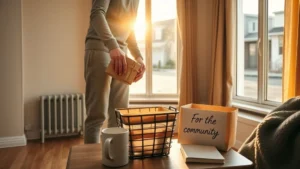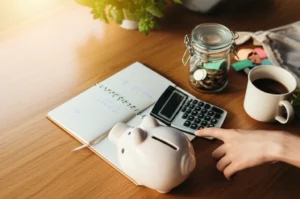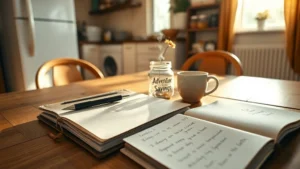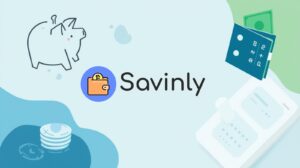Sticker Shock, Anyone?
So, I’m gonna say it—most of us totally underestimate what it actually costs to get our own place. You might save up for ages, thinking you’ll finally feel grown-up the day you sign that mortgage… but when you really crunch the numbers, renting usually wins (at least at first!). Have you ever gone house-shopping, did the math, and realized, “Wait…renting feels like the better deal?” If yes, you’re definitely not the only one.
This past year, it’s been everywhere: headline after headline saying, “Renting saves you more than buying,” or, “Buying is now 38% higher per month than rent, on average.” That’s not just some clickbait drama either. In 2025, the data is super clear—across pretty much every major U.S. city, renting a starter home or apartment still keeps more cash in your wallet than owning does June 2025 Rental Report findingsand recent research on spending habits.
But why? What sneaky reasons make renting generally cheaper? And is it always the best frugal move? Let’s dig in—messy notes, real talk, and honest stories included.
Those Upfront Costs…Ouch
Why Renting Doesn’t Wreck Your Savings Off the Bat
The first time my friend Sam moved for a new job, his biggest relief was knowing he only had to cough up one month of rent and a security deposit. That’s the magic of renting: you slip right in with minimal cash upfront. But try buying a place? The universe demands a fat down payment (think 5-20% of the home’s price), closing costs, plus inspections, appraisals, and sometimes even upgrades before you can chill on the couch.
| Cost Type | Renting | Buying |
|---|---|---|
| Upfront Money | First month’s rent + deposit (maybe a few thousand) | Down payment (like $20k-$80k) + closing costs ($5k+) |
| Immediate Repairs | Usually none—landlord handles it | Might shell out for broken appliances or fixes on day one |
I once did the math for myself, dreaming of homeownership. The total “get-in” price just to sign at the dotted line? Way more than I’d ever dropped at once—think of it like the most terrifying shopping spree you’ll ever do. That realization made me peek at what are some of the costs of living on your own? before I made a move. Spoiler: it added up… fast.
The Monthly Drain Game
Where Every Dollar Goes…and Goes…
This one still blows my mind—homeownership’s “real” costs are way more than the mortgage payment on Zillow. If you’re renting, the monthly number on your lease is mostly “it.” A little renters insurance, maybe utilities, but that’s about it.
But homeowners? Oh boy. First, there’s the mortgage, then property taxes, then home insurance (not cheap these days). Sure, you build equity—eventually. But in real time, you’re watching bills stack up. According to cost breakdowns in 2025, the average mortgage payment (principal, interest, taxes, insurance) has ticked up to around $2,768. Renters, meanwhile, average closer to $2,000 (sometimes less). That’s a $750+ gap every month, and it’s felt everywhere from Austin to Milwaukee.
Maintenance Surprises Aren’t Fun
I haven’t owned a home (yet!), but my cousin did—and three weeks in, her furnace died. She dropped $4,500 just to get the heat back. When you rent, the landlord gets that phone call, not you. It’s almost like free therapy.
Homeowners ~ statistically ~ spend $20,000 a year just keeping things working (that’s utilities, yardwork, repairs, upgrades). The biggies: around $7k on utilities, $6k on maintenance, $5k on renovations. It’s bananas. Want to see if that fits your budget? Revisit what are some of the costs of living on your own?—because you need to cushion for way more than rent or mortgage!
What About That Mortgage Piece?
You’ll hear this a lot: “But rent is throwing money away! At least with a mortgage, you build equity!” And sure, it’s comforting to think so—but, have you really looked at what is your mortgage principal?? In the early years, most of your payment goes to interest, not toward owning the house. That “principal” is the chunk you actually owe, and—ugh—you barely touch it at first.
Have you ever checked an amortization chart and nearly cried? Yeah… not the fast-tracked personal wealth story we’re all sold. Which is why, for many of us on a tight budget, renting offers a much gentler ride.
The Flexibility Factor
Freedom to Move—and Invest
Okay, but what if you’re stuck in a lease and dreaming of Tokyo? Or, maybe your dream job offers a relocation package you can’t refuse? Renting means you can pick up and go with little drama; you’re not waiting to sell a house or hoping the market doesn’t tank. That life flexibility is huge, especially while you’re still hunting for “your place” in the world.
I met a mortgage broker in Birmingham (famous for home-buying advice, ironically) who still rents, partly for that freedom. He said he invests what would’ve been his down payment instead—and honestly, the man is onto something. In markets with high home prices and rising interest rates (hello, 2025), putting extra money in stocks or retirement instead of a roof can be the smarter play according to rental studies and a few savvy finance YouTubers.
The 8.71% Rule, in Real Life
There’s this trick, the 8.71% rule (from nerdy finance circles)—if the rent you’d pay, plus what you’d earn by investing the difference between renting and buying, beats the total cost of homeownership…rent, my friend, is the way to go. It’s nerd math, but it’s a gut-check too: renting leaves you less locked in, less anxious, more ready for whatever life throws you.
Plus, you get to try new neighborhoods, experiment, and save for when the perfect house comes along—if that’s your vibe. When you’re prepping for major goals, don’t skip reading about Why is it important to do the five foundations in order?. It’ll help you put your savings where they matter most.
When Buying Might Make Sense
Staying Put for Years?
No one’s saying buying is always a mistake! If you’re planning 10+ years in one spot, want serious roots, or just love the idea of customizing your own kitchen, buying could be the best path. In rare places, like Pittsburgh, buying a starter home is actually cheaper than renting—yep, it happens! Sometimes, local markets are a little wild and toss the rules out the window per current rental market data.
But for most of us, especially if you’re still in the “should I move?” stage, or love the idea of switching cities… renting is simply less risky.
Ready to Buy? Here’s How to Be Smart About It
If and when you hit that spot where buying a home just feels right, don’t rush! Dig into options. For example, when you’re ready to buy a house, the best option is a what?—meaning, compare FHA loans, conventional loans, or maybe fixer-uppers you can handle on a budget. Knowing what you’re taking on, financially and emotionally, is everything. The market moves fast, and so should your research.
Some buyers swear by waiting out the current market, renting while they watch prices (or interest rates) cool off. That patience can pay…literally.
Stories Make It Real
True Tales From the Front Lines
I’ll never forget my neighbor Mark, who bought the “ugly duckling” house on our street. He said it’d be fine—he’d learned all about budgets and expected some surprises. But he called me one night, panicked because the sewer line backed up (“It’s raining indoors, help!”). The repair? $8,000 he hadn’t planned for. Those are the moments renters skip, with a quick maintenance request or landlord call. Meanwhile, Mark? He admits he sometimes envies renters’ easy lives.
On the flip side, my cousin who kept renting during the tech-boom years? She watched her peers buy at the top, got to upgrade apartments when her job moved, and saved her “down payment” fund in the market—doubling it before she was even ready to settle down. That’s a win. Her secret? Budgeting first. (If you need a refresher on how, get into Why is it important to do the five foundations in order?.)
So…Which Best Describes Why Renting a Place to Live Is Generally Cheaper Than Buying a Home?
It’s simple, but no one says it out loud: renting doesn’t ask you for a mountain of money upfront. And once you move in, you’re not sucked dry by surprise costs: no surprise repairs, sky-high insurance, or endless property taxes. These days, places like Milwaukee or Austin see renters saving $800+ each month over first-time homeowners…and that’s before you factor in all those little costs that creep up when you own per recent rental studies.
You can move, save, invest—heck, just take a vacation—without worrying if your roof is about to fall apart. You skip the risk of being “house poor.” And you build your life on your own timeline, not the housing market’s. You can find more on mortgage basics at what is your mortgage principal?. And remember, when the time is perfect for you, check out when you’re ready to buy a house, the best option is a what? for your next steps.
Wrap Up: Your Frugal Path Home
If you’ve ever thought, “Am I missing out by renting instead of buying?”—relax, you aren’t alone. The numbers don’t lie: this year, renting almost always leaves more room in your budget to dream, save, and be flexible. You dodge those overwhelming upfront costs, protect yourself from surprise repairs, and free up your cash for things that actually make you happy (like, you know, pizza. Or travel. Or—wild idea—a fully padded emergency fund).
It’s not just about doing what everyone else says is “the adult thing.” It’s about what makes sense for your wallet, your peace of mind, and your wild plans for the future. Whether you stash your savings in the market, travel light, or just want the option to say yes to new adventure—it all counts. Give yourself that freedom to choose without guilt. And please, if you’ve got a story to share, your own moves, or even just a funny renting tale—drop it below. Let’s figure it out together, one real-life money choice at a time. You’ve got this!












